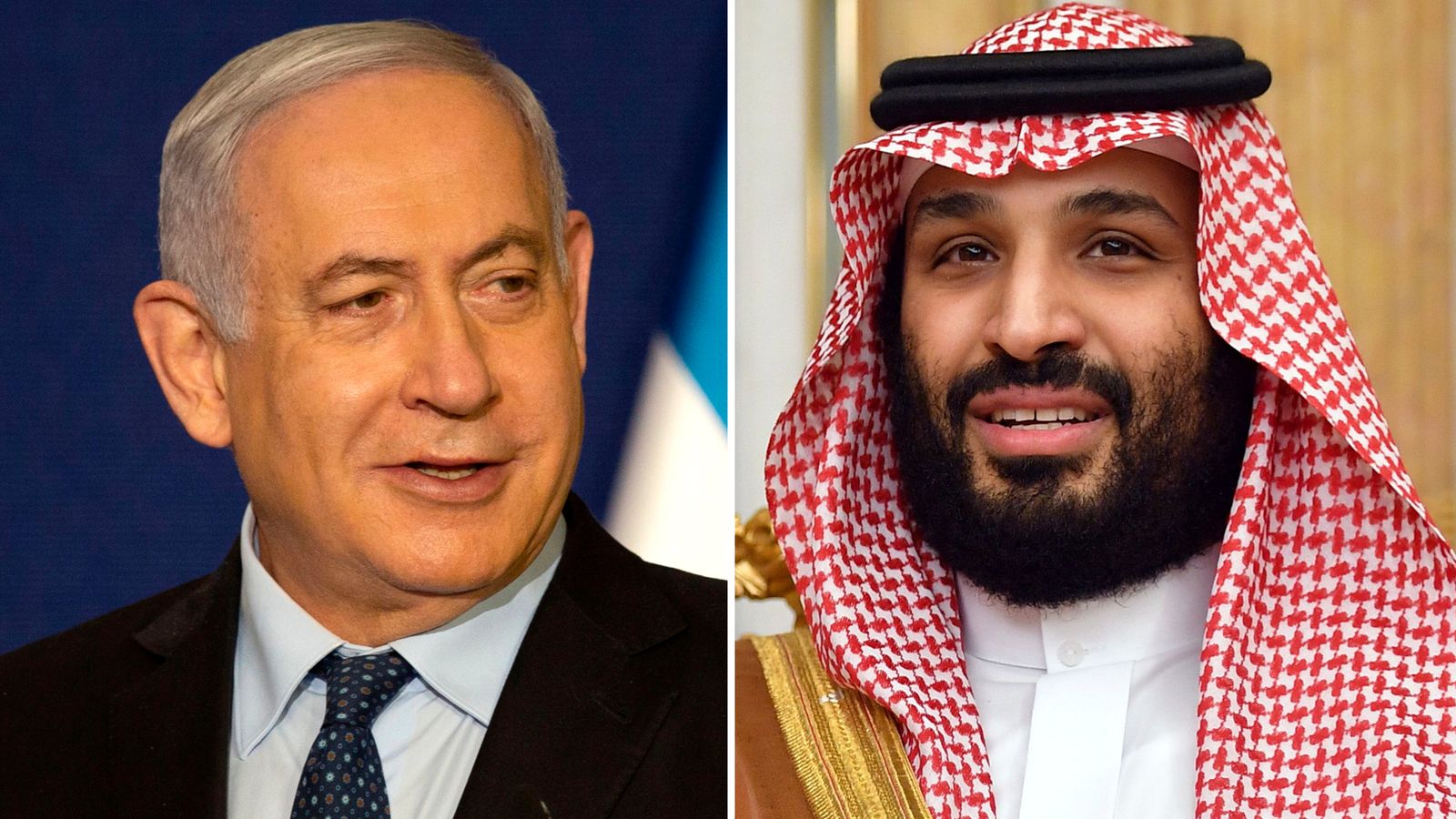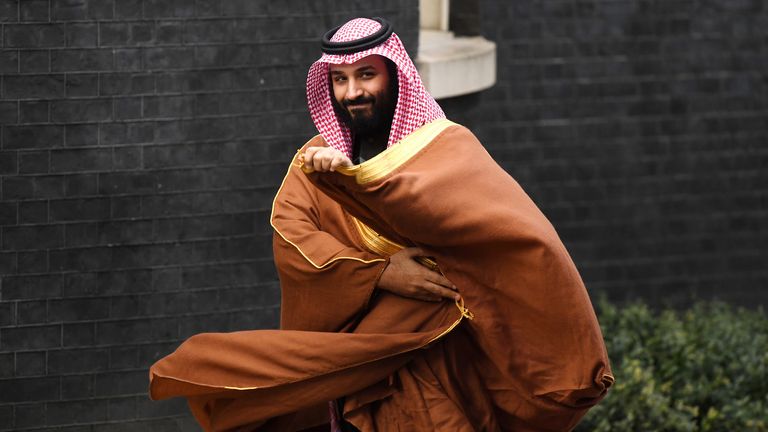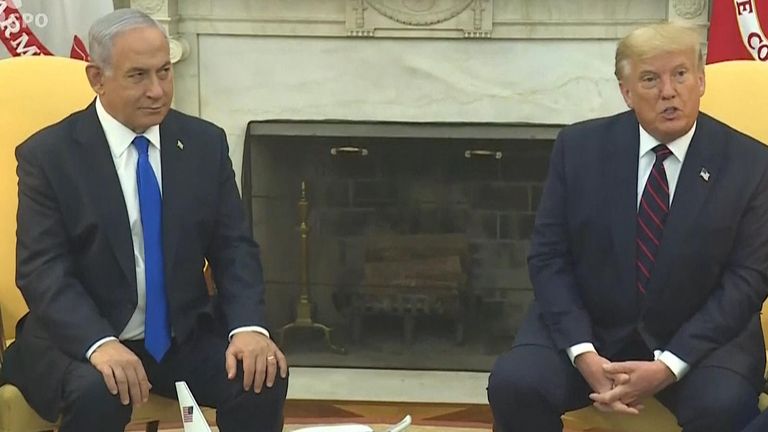Israeli Prime Minister Benjamin Netanyahu made a secret trip to Saudi Arabia this week where he met with the Kingdom’s crown prince, according to Israeli media reports.
The stunning diplomatic development, which is not being denied by Mr Netanyahu’s office, follows two historic normalisation deals between the Jewish state and other gulf Arab nations, Bahrain and the United Arab Emirates.
According to reports which first emerged in the Israeli newspaper Haaretz, a private jet known to be used by Mr Netanyahu was tracked flying from Tel Aviv to the Saudi city of Neom on Sunday.
The plane was on the ground for two hours before returning to Tel Aviv just after midnight.
Both Saudi Crown Prince Mohammed Bin Salman and US Secretary of State Mike Pompeo are known to have been in Neom. Saudi Arabia held the G20 summit at the weekend.
The reports in the Israeli media claim that Netanyahu was accompanied by Yossi Cohen, head of the Israeli intelligence agency Mossad.
It’s understood that the meeting was kept so secret that neither defence minister and alternate prime minister Benny Gantz, nor foreign minister Gabi Ashkenazi were told about the trip.
Within hours of the media reports emerging, a member of the Israeli cabinet appeared to confirm the meeting.
“The very fact the meeting happened, and was outed publicly, even if half-officially right now, is a matter of great importance,” Israeli Education Minister Yoav Gallant told Army Radio.
Saudi Arabia has been cautiously supportive of the diplomatic normalisation deals which Israel recently struck with the United Arab Emirates and Bahrain, but its own deal with Israel was not at that stage thought to be achievable.
The Israeli deals with the UAE and Bahrain were the culmination of years of quiet diplomacy, but were formally announced with fanfare at a ceremony on the lawn of the White House in Washington last month.
US President Donald Trump took personal credit for the deals.
In striking them, the gulf countries ditched the convention that no Arab state would recognise Israel unless and until a viable Palestinian state could be created as part of a Palestinian-Israeli peace deal.
The Palestinians saw the UAE and Bahraini moves as a betrayal.
Speaking on the sidelines of the G20 at the weekend, Saudi Foreign Minister Prince Faisal bin Farhan Al Saud appeared to be holding to the convention.
He said the kingdom “has supported normalisation with Israel for a long time, but one very important thing must happen first: a permanent and full peace deal between Israelis and Palestinians”.
It is not clear if the meeting between the crown prince and the Israeli prime minister constitutes a change in the Saudi position, but it does represent another tremor in a seismic geopolitical shift for the region.
It sends a message to Iran that there is a growing alliance between Israel and its one-time gulf foes – an alliance which represents a strengthened axis against Iran.
For the Palestinians, it raises more questions about their position and the future of their quest for a viable state existing alongside Israel.
Incoming US president Joe Biden is not likely to oppose the new Israeli-Gulf deals.
However his regional position suggests he will be more sympathetic to the Palestinian cause and will want to apply the right leverage to ensure the quest for a viable Palestinian state is not lost.




